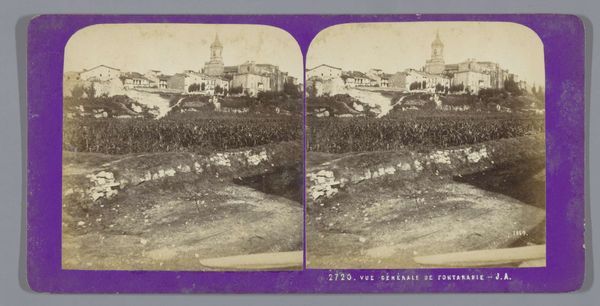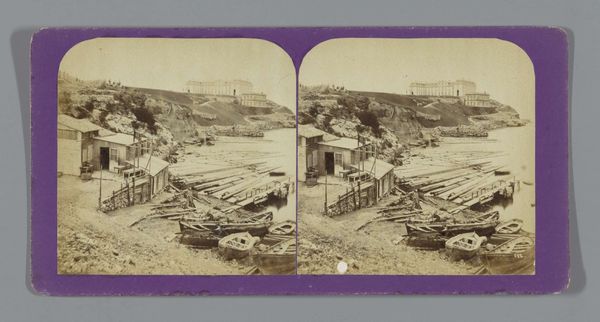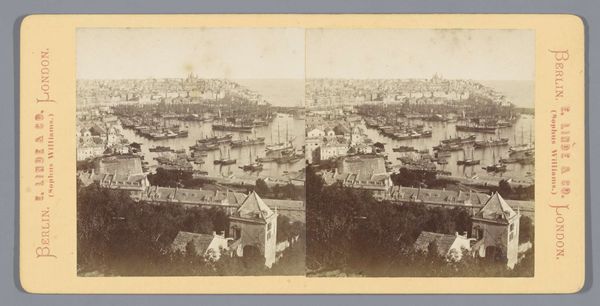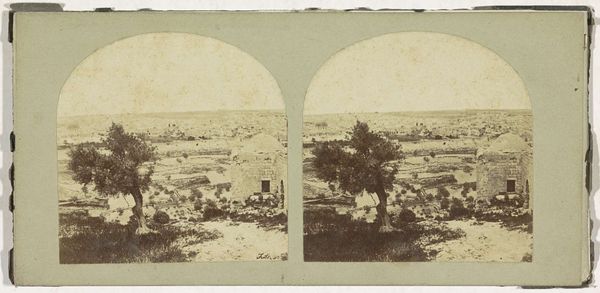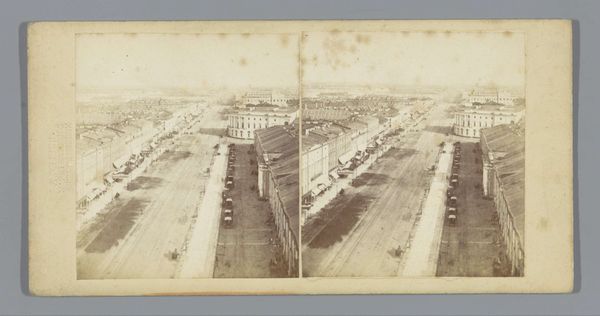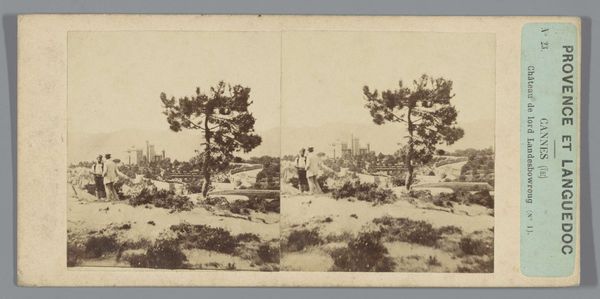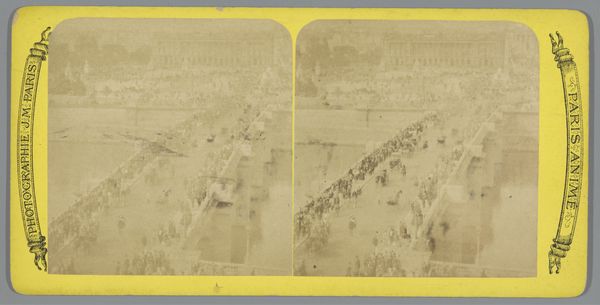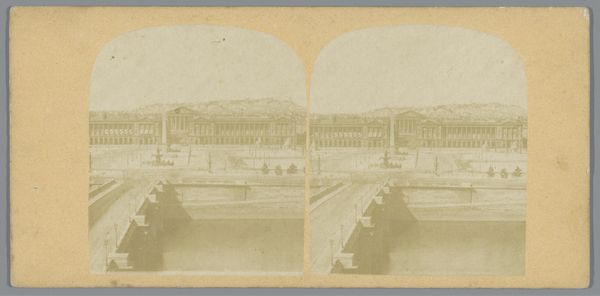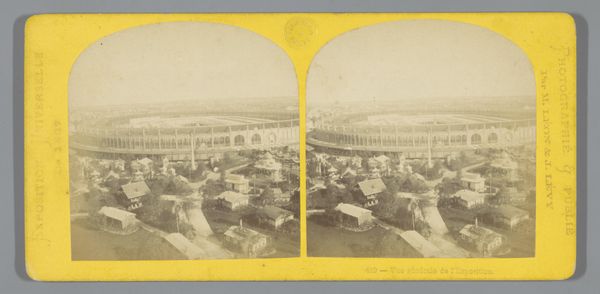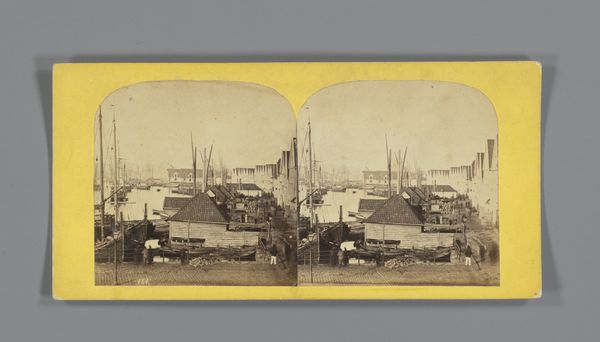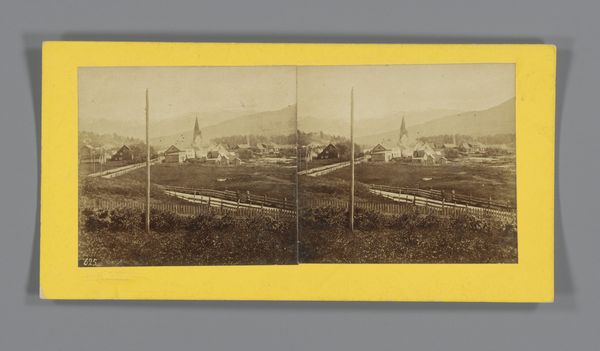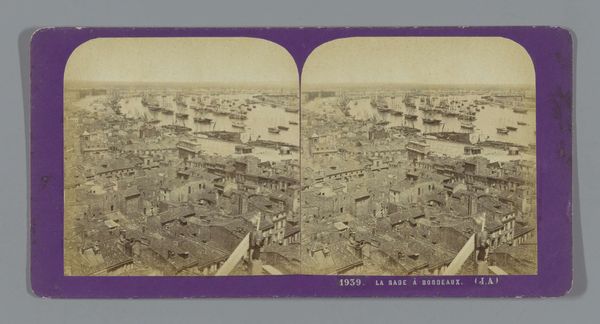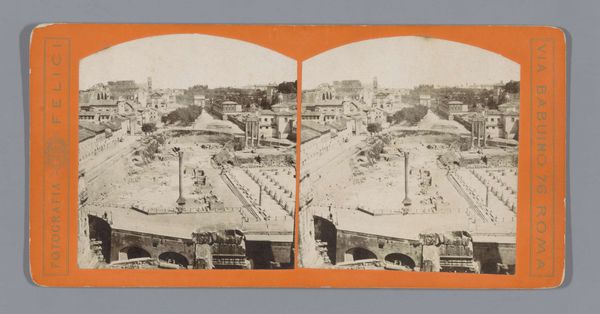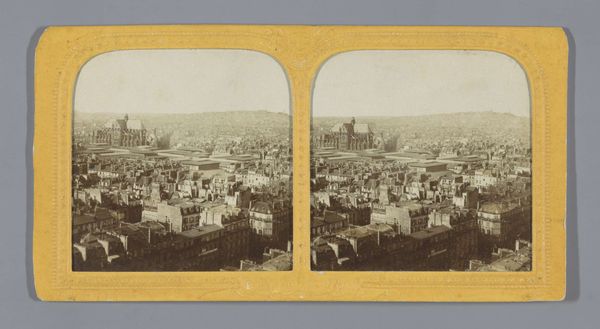
Dimensions: height 88 mm, width 177 mm
Copyright: Rijks Museum: Open Domain
Jean Andrieu made this stereoscopic photograph of Catania's harbor using the wet collodion process, a technique that was revolutionary for its time. The process involved coating a glass plate with light-sensitive chemicals, exposing it in the camera while still wet, and then developing it immediately. This labour-intensive method produced a highly detailed negative, from which multiple prints could be made. The albumen print, made from paper coated with egg white, gives the image its sepia tone and smooth surface. Looking at the image, consider the labor involved: from the preparation of the chemicals to the meticulous work in the darkroom. Photography, even in its early days, was a blend of science, craft, and artistry. And like all forms of making, it has social and economic implications. It changed how we document the world, democratizing image-making while also creating new forms of labor and consumption. This photograph exemplifies the importance of understanding the materials and making processes, not only for appreciating the aesthetic qualities of the work, but also its cultural and historical significance.
Comments
No comments
Be the first to comment and join the conversation on the ultimate creative platform.
